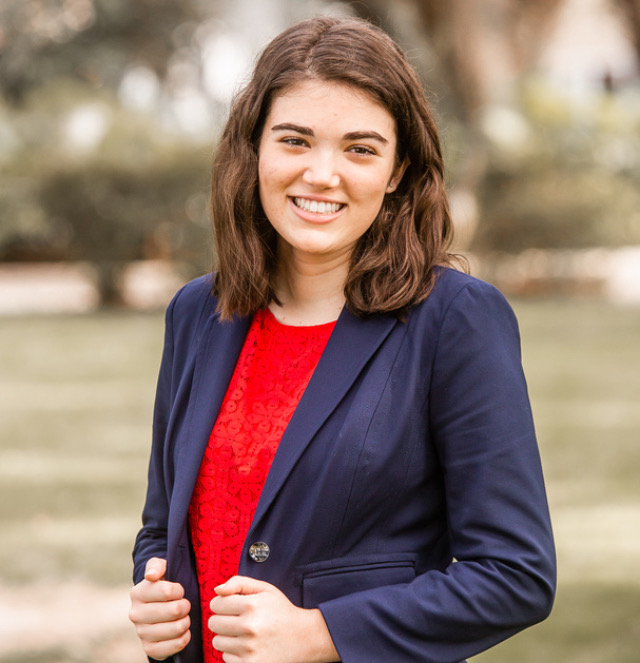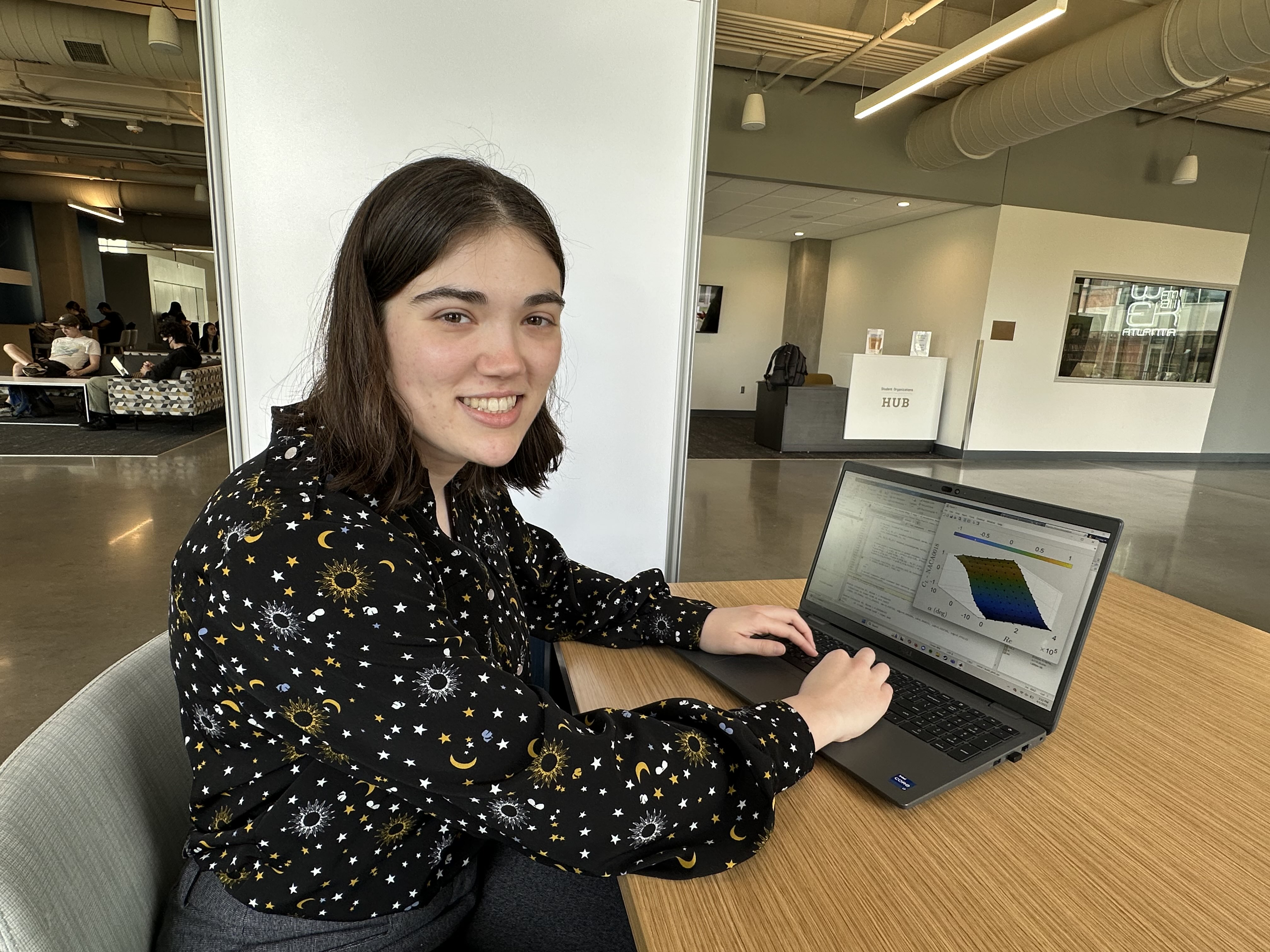Emma Joly is a 4th-year aerospace engineering major studying viscosity effects on aeroelastic behavior of very flexible wings with Dr. Cristina Riso.

How long have you been an undergraduate researcher at Georgia Tech?
I started undergraduate research with the Aerospace Systems Design Lab as a sophomore and completed one year of SysML research with Dr.Cimtalay. Last semester, I joined Dr. Riso’s group researching topics in aeroelasticity.
How did you get involved with undergraduate research?
I started pursuing research opportunities as to fulfill BSMS requirements by emailing professors listed on the School of AE’s undergraduate research page. After gaining some experience with undergraduate research, I found a description for a research project from the School of AE that interested me and I arranged a meeting with Dr. Riso to talk about getting involved.
What are you working on?
I have been working with aeroelastic codes that produce aerodynamic behaviors of fixed wings, such as lift, drag, and deflections along different axes. Last semester, I worked on a script to smooth spurious solutions in surfaces of coefficient of lift, drag, and moment for different angles of attack and Reynolds numbers. I am continuing this semester by writing scripts to process output data and examining the effects of viscosity and nonlinear aerodynamics in wing deflections.

What is your favorite thing about research/researching?
Research has given me the opportunity to apply concepts I learned in class while gaining an exposure to complex topics like aeroelasticity. I enjoy developing code and improving tools that I can see myself or other researchers using in the future.
What are your future plans and how has research influenced them?
After graduating, I hope to work in engineering analysis with a focus on computational fluid dynamics and aeroelastic analysis. Through my research, I’ve gained a greater understanding of what goes on behind the scenes in fluid dynamics solvers and have developed a better intuition for numerical errors and how to improve solution quality. These skills will be essential for my future career.
